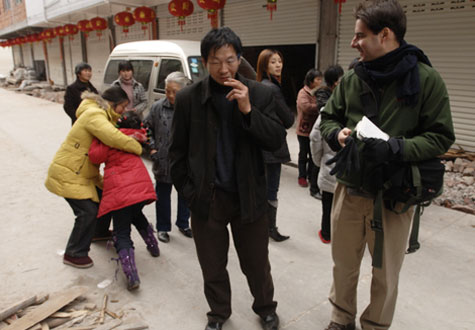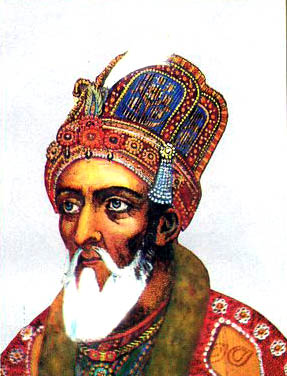On people, or: "I didn't want to start with an issue"
Peter Hessler, former English teacher in China and author of several books on Chinese life and people, both historical and modern, is a 2011 MacArthur Fellow and long-form journalist. In his interview in reception of his prize, he spoke on what it is to write about China and Chinese life, to him:
“There's always been a tendency to see a place like China in very political terms. I think this is partly because it’s a communist country, it’s run by the Communist Party. And from my perspective, living in China, starting especially the way that I started, as a Peace Corps volunteer, in a small community, teaching in a small college, it gave me a very different starting point. And I really wanted to write about ordinary people in China. I didn't want to start with an issue, or start with a political idea, I wanted to start with an individual, start with a community.”
 To me this exemplifies the kind of approach that public historians take to topics of history that have traditionally been very idea-based, politically oriented, and top-down in nature. We can look at a country or an issue or a group of people through these high-minded mechanisms, or we can study people themselves, and how they fit into the larger historical fabric. That is a much more important goal, and ultimately more meaningful.
To me this exemplifies the kind of approach that public historians take to topics of history that have traditionally been very idea-based, politically oriented, and top-down in nature. We can look at a country or an issue or a group of people through these high-minded mechanisms, or we can study people themselves, and how they fit into the larger historical fabric. That is a much more important goal, and ultimately more meaningful.
Hessler is a journalist, that is an important distinction; but he writes based in a historical context, referencing the past at each step, and this is also valuable. (I will fight with people who dismiss great books written by journalists.)
 Looking at one individual person's perspective can lead towards a dangerous of generalizing based on not enough larger perspective, yes, but it is in knowing the balance, and in incorporating these people into history that we are best served by learning of the past. Genealogy is not real historical study, but it gets people engaged, and that is important. Someone is interested in feeling a personal connection to the past, and that cannot be ignored in our own, professional approaches to studying history.
Looking at one individual person's perspective can lead towards a dangerous of generalizing based on not enough larger perspective, yes, but it is in knowing the balance, and in incorporating these people into history that we are best served by learning of the past. Genealogy is not real historical study, but it gets people engaged, and that is important. Someone is interested in feeling a personal connection to the past, and that cannot be ignored in our own, professional approaches to studying history.
I am always reminded of British writer and historian William Dalrymple's fantastic skill for emphasizing the individual's experience of history, as he does in The Last Mughal: The Fall of a Dynasty: Delhi, 1857, which keeps the reader vividly engaged by showing us the Indian Rebellion of 1857 through the eyes of several key player on the ground. I have never read a book of history in which I felt so deeply connected to the characters of the era, and when they all begin falling at the hands of their enemies, I had a true emotional reaction to the destruction of this city and these lives. I've heard he does the same thing in one of his other works, White Mughals: Love and Betrayal in Eighteenth Century India. An inspiring example--though not without his critiques--of this kind of engaging historical writing.
